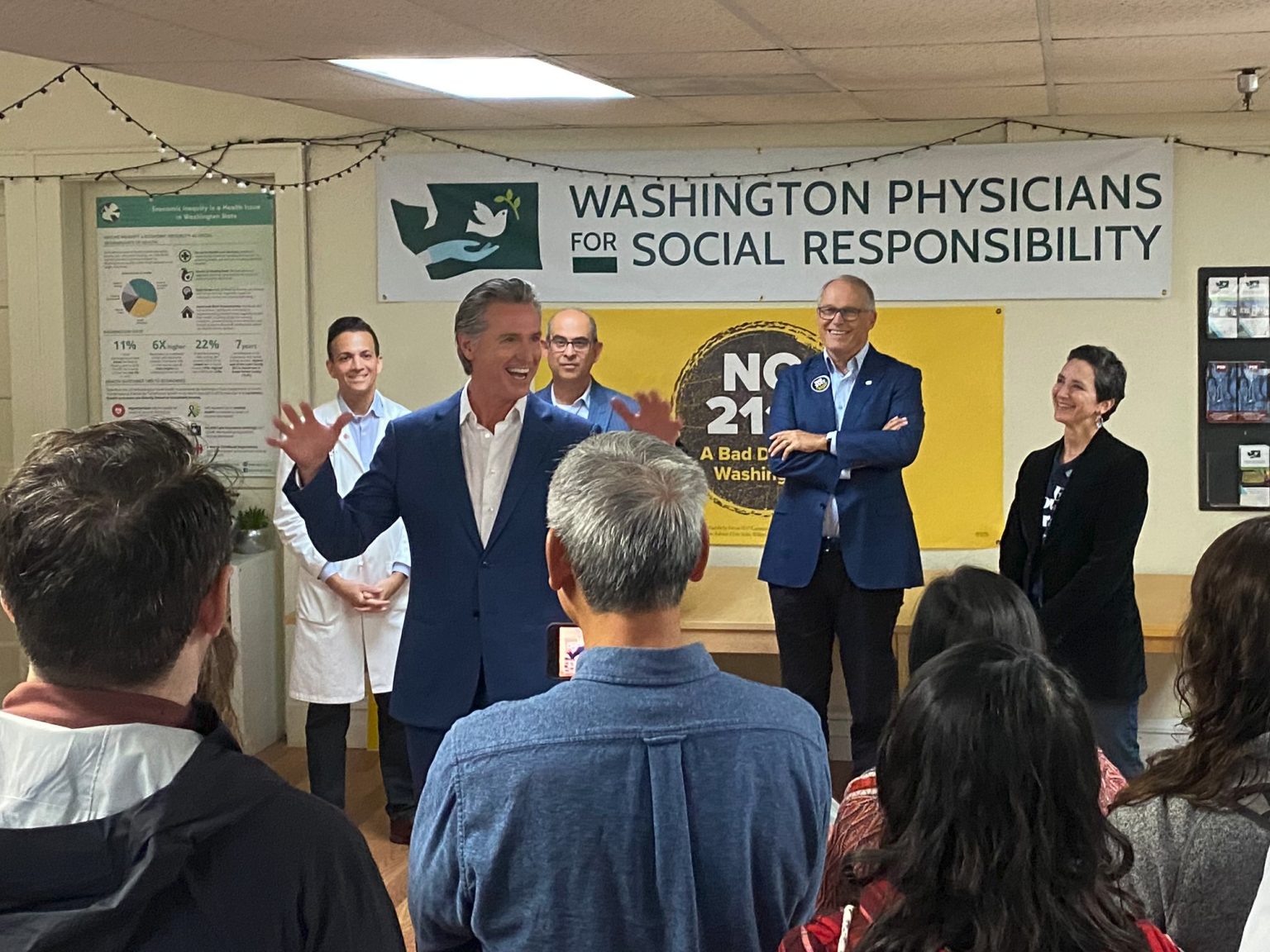Washington Gov. Jay Inslee recently hosted California Gov. Gavin Newsom in Seattle to garner support against Initiative 2117. This ballot measure aims to eliminate a program that requires Washington’s largest polluters to pay for greenhouse gas emission permits, preventing future similar efforts from being created. The cap-and-invest carbon market established by the state’s Climate Commitment Act has raised billions of dollars for climate programs, including initiatives in communities impacted by climate change, transportation projects, and support for job creation in climate tech companies focusing on decarbonization.
Proponents of Initiative 2117 criticize the program as a hidden gas tax and attribute the state’s high gas prices to it. The Climate Commitment Act, championed by Gov. Inslee, is hailed as Washington’s most impactful climate law. The governor, who is in his third term and not seeking re-election, has been deeply involved in climate issues throughout his tenure. The two governors met for a No on 2117 rally in Seattle, supporting efforts to educate the community and canvass against the initiative.
The Let’s Go Washington campaign, led by Seattle hedge fund manager Brian Heywood, is advocating for a total of four initiatives on the ballot. More than $13.4 million has been raised for these measures, with nearly half of the funding coming from Heywood. On the opposing side, the No on 2117 campaign has gathered nearly $14.2 million, with support from organizations such as Microsoft, Amazon, bp America, and REI. Additionally, seventeen federally-recognized Tribal Nations in the state have joined the coalition to fight against the initiative.
During their joint appearance in Seattle, Gov. Inslee and Gov. Newsom engaged in friendly banter about which state leads in electric vehicle uptake. California holds the top spot nationally, while Washington ranks second per capita for EV registrations. Washington is currently exploring the possibility of linking its carbon market with California and Québec’s larger, established carbon market. This linkage is believed to strengthen efforts in combating climate change and reducing air pollution, potentially encouraging other governments to adopt scalable, market-based climate policies in the future.


